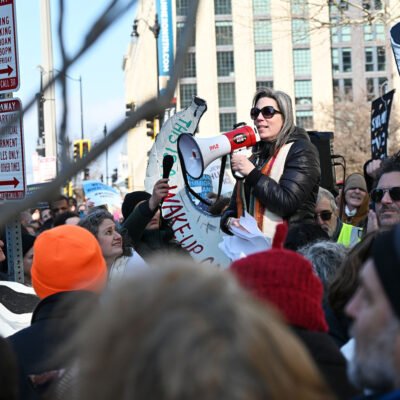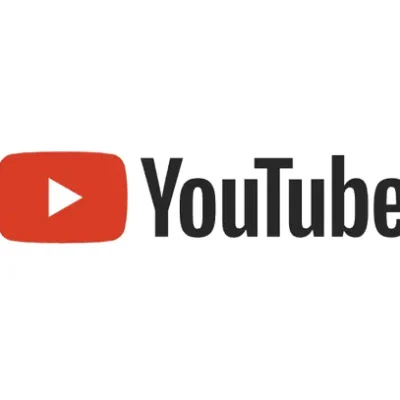Ultimately, a single wrong answer cost Rafael Benítez his job, the one he had coveted for most of his working life. The slight downturn in results, the disaffection of the players, the sudden loss of trust from those who had chosen to employ him — all of it, he believed, could be traced back to that single, relatively harmless, misstep.
Not long into his ill-fated reign as coach of Real Madrid, in 2015, Benítez had been asked what seemed, on the surface, a simple question: Did he regard the team’s star, Cristiano Ronaldo, as the best player in the world? Perhaps Benítez was trying to be clever. Perhaps he was trying to challenge his star. Perhaps he was, unadvisedly, being honest.
Either way, he did not really see the big deal. Ronaldo was certainly one of the best players in the world, he responded. But then so was Lionel Messi. Benítez said he did not want to have to choose between them. “It would be like asking my daughter if she prefers my wife or me,” he said, by way of explanation.
Barely four months later, Benítez was out at Real Madrid. The contemporaneous reports suggested he had struggled to build a bond with the players.
The reality, as far as Benítez was concerned, was more straightforward. His answer, all those weeks earlier, had displeased Ronaldo, and the coterie of advisers and power brokers and hangers-on who surrounded him. They would not forget the slight. From that day, Benítez was toast.
In that context is a lesson. Even the simplest question — the one that sounds and looks and feels so much like a softball, so basic and brief that it could not possibly do any harm — is at best a test. At worst, it is a trap.
You are a coach in charge of one of the world’s most prestigious clubs. In your care is one of the game’s brightest stars. What you believe, what you feel, what the objective truth might happen to be is irrelevant.
Do you think your player is the best in the world? For the purposes of harmony and unity and your own continued viability as an employee: Yes, you do.
That Luis Enrique, the Paris St.-Germain coach, chose a different path when asked precisely that question last month, then, constituted something of a risk. He had just watched Kylian Mbappé, not only his team’s unquestioned star but also its most valuable asset, its cornerstone and its unofficial sporting director, score a hat-trick in a 3-0 victory over Reims.
Mbappé had spent most of the previous two summers threatening to leave his hometown. The club had, at various points, mobilized every single one of its resources — up to and including Emmanuel Macron, the French president — to persuade him to stay. The team’s hierarchy was reported to have afforded him powers so extensive and unorthodox that it is safe to say the leaders are operating on the assumption he very much is the best player in the world.
Luis Enrique, though, took even more of a risk than Benítez. “I’m not really happy with Kylian today,” he said after the win over Reims. “Why? Because managers are strange. About goals, I don’t have to say anything, but I think he can help the team more in a different way. I told that to him first. We think Kylian is one of the best players in the world. No doubt. But we need more, and we want him doing more things.”
It is to Mbappé’s credit that, just as the storm was gathering, he did his best to quell it. Luis Enrique had said precisely the same thing to him privately, he confirmed. He had, even if he said so himself, taken the criticism “well.” “He is a great coach,” Mbappé said. “He has a lot to teach me. From Day 1, I told him he would have no problem with me.”
Whether that will hold — and for how long — is impossible to gauge today, but it is another reminder of the inherent, inexorable tension between soccer’s two overriding urges — one that is far from unique to the modern Paris St.-Germain, but is perhaps drawn more clearly there than anywhere else.
There is one, the one that plays out on the field, that holds that this is now resolutely a coach’s game, one in which strategy conquers all and players are cogs in a finely tuned wheel, each following intricate and comprehensive instructions about where to be and what to do. In this vision, everything is subordinate to the grand vision being concocted on the sidelines and in the data analyst’s office.
And there is another one — the one that is rooted to some extent in the traditional economics of sports but has been exaggerated by the devotional nature of fandom in the digital age — that places individual stars at the front and center of a club. This theory has given these stars a heft and pull greater than the institutions that make and pay them.
None of that is new, of course — managers have always been compelled to balance the needs of the team with the wants of the individual — but it has never felt so pronounced as it is now, the twin forces never quite so repellent. The system may be the center of the universe, but the stars exert a gravity of their own.
P.S.G. has been struggling with that equation for some time. It is not so long, after all, since it named a team that included Neymar, Messi and Mbappé, none of whom was especially keen to submit himself to the sort of defensive duties that are the preserve of lesser mortals.
Things have improved — Messi and Neymar have moved on, of course — but Mbappé remains: a wondrous, uplifting, irreplaceable talent, but still an entity that somehow remains distinct from the team itself.
Luis Enrique’s ethos is, like those of all modern coaches, based on collectivism, the complex interplay of 11 individual components. At times, particularly in the Champions League — where it has now failed to beat Newcastle United twice, been dismantled by A.C. Milan, and may not reach the round of 16 — P.S.G. has the air of a machine spluttering to find a gear.
It is caught, in essence, in a trap. Luis Enrique’s vision cannot take hold if Mbappé is an exception. Mbappé cannot be exceptional if he has to spend all of his time dutifully tracking his opponents. The star cannot shine without the system, but the system cannot hold in the shadow of the star.
Luis Enrique will do well to find a solution to that riddle. Sometimes, as those who have been in his shoes can attest, there are no simple answers.
The reflexive response to the sight of André Onana standing, yet again, with his head bowed and his shoulders slumped after Manchester United’s gloriously puerile draw with Galatasaray on Wednesday is sympathy. Last year, Onana was the standout goalkeeper in the Champions League. A few months at Old Trafford seem to have drained him of all confidence.
It is difficult not to wonder, though, what David de Gea must make of it all. For a decade, de Gea was not only United’s first-choice goalkeeper but frequently its saving grace and, at points, its highest-paid player. That the club did not seek to renew his contract when it expired over the summer was no surprise — his form had waned, and his salary was exorbitant — but the fact that he has yet to be picked up by anyone now borders on the bizarre.
Is he pricing himself out of the market? Is he turning down offers in the hope of the perfect opportunity? Has he lost the motivation to play? Or is it — and this may be the Occam’s razor solution — that soccer has an inclination toward a potent blend of recency bias, faddishness and groupthink?
This … Might Work?
At this point, it would probably be a good idea if the International Football Association Board — the faceless, unaccountable gaggle of bureaucrats who seem to have decided that soccer has to be played according to their wishes — took a little time away. Most of the board’s recent interventions, after all, ranging from V.A.R. to whatever the handball rule is this week, might broadly be said to have been a mixed bag.
The decision to investigate an “orange” card — leading to a player’s entering a 10-minute sin bin for a range of specific offenses — does, though, have some merit. There are a plethora of incidents that feel too serious for a yellow card but not quite deserving of a red.
That has only become a pressing issue, however, because of the increased officiousness with which games are refereed, the blame for which can squarely be placed with the IFAB, but the fact that the board is solving a problem of its own making should not be a disqualifying factor.
Some change can be good. This may be one of those times.
Correspondence
This week, a friend pointed me in the direction of something called a PANAS personality test, as endorsed (or created; I’m not sure) by the academic Arthur C. Brooks. It struck me as flawed — it separates people into four emotional categories, and yet none of them are “Yorkshireman” — but, with five minutes to spare, it struck me as a harmless diversion.
My sunny demeanor, it turns out, makes me a “cheerleader,” one of life’s optimists. Jim Murphy and Scott Rehr, by contrast, would both get “poet,” I suspect, with their tendency to linger on negative outcomes. The N.F.L.’s experience, Jim wrote, would suggest that a Premier League commissioner — the role raised in last week’s newsletter — would be “pretty much a lackey for the owners.”
Scott, if anything, was more dubious. “The idea of a Premier League commissioner sounds great until I think about FIFA and Gianni Infantino,” he confessed. “Would a Premier League commissioner more naturally slide into the autocrat role demonstrated by Infantino?”
That would, of course, be a risk. A Premier League commissioner would be vulnerable to manipulation by the people who paid the boss’s wages. It might be offset just a little, though, by accepting the wise counsel of S.K. Gupta. “The problem is the unenforceable and arbitrary rules, which can only be enforced retrospectively,” he wrote, a reality that often results in things decided in courtrooms instead of league offices.”
He added, “Rather than limiting the loss which a team incur, the better system would be to have a transfer cap which teams can spend, based upon the winnings of the team in all of the competitions they have been in.”
I’m not sure you even have to go as far as instituting a salary cap — something that is much more easily applied in sports played in closed leagues drawn from a maximum of two countries — but there’s no doubt that real-time enforcement of the rules would improve the situation. The Premier League should not be left to pursue deferred punishment; it should be in a position to impose immediate prohibitions on teams that transgress its financial requirements.
Quite where Keith Kreitman would fall on the Brooks test is not for me to say, but I will admit to a sneaking inspiration for people who are exasperated by trivialities. “I wonder about the constant use of the term ‘unlucky’ whenever a player bangs a ball off the upright or the crossbar,” Keith wrote. “It’s not like a stray bird or a sudden burst of wind affected the flight of the ball. The player merely missed the target. There is simply no component of luck involved.”
This is technically correct, which as we all know is the best way to be correct, and it is a point I have made over the years to several players. All I can tell you is that they don’t like being told they should have aimed better.



